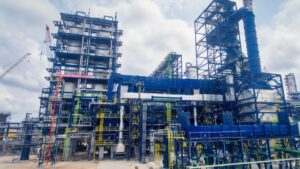
PMS: IPMAN laments inability to source products
The Independent Petroleum Marketers Association of Nigeria (IPMAN), has said that the prevailing shortage in the supply of Premium Motor Spirit (PMS) in the Southeast may not end soon because of the challenges facing marketers in procuring products.
Mr Chinedu Anyaso, Chairman of IPMAN, Enugu Depot Community in charge of Anambra, Ebonyi and Enugu States, said this in an interview with the News Agency of Nigeria (NAN) in Awka on Saturday.
Newsmen who monitored the situation in Awka on Friday reports that petrol now sells for between N400 and N450 per litre and between N500 and N600 in the black market, depending on time.
Most filling stations are closed for lack of petrol while a few that are selling are doing so at a very high price with long queues.
Anyaso said the quantity of products entering into the Southeast had reduced by more than 50 per cent compared with what they got in normal time.
He said at the moment, nothing suggests the easing of the problems as some of them were yet to get supplies they paid for over a month ago, unless the federal government effected a drastic action to flood the country with products.
“Our members who got NNPC allocation last year, paid for products since December, up till now they have not received their supply, rather, they asked them to pay additional money for which most of them made overdraft of between N1.4 million and N1.6 million.
“As you can see, most filling stations in the zone have shut down because they can no longer source products normally, those that have pay through their nose to get it, that is why there are abnormal rates because they have to recover their cost and make some profits.
“It is impossible for the authorities to enforce price now because they are supplying products, our people are making extra effort to ensure our people have products to buy even if it is expensive,” he said.
Anyaso said in addition to the hardship the people are facing as a result of scarcity and high prices, thousands of outlets’ stand to lose their jobs if problems persist as no marketer would continue to pay workers when they are not in business.



